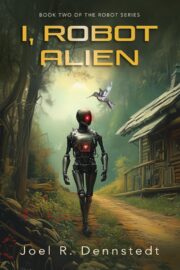Guest Post: Learning to Say ‘No’
by Nancy Fulda
 There comes a time in the life of of every author when the list of Things One Should Do exceeds one’s capacity for time investment. Commissions, anthology invitations, interview requests and business propositions… They all accrue in proportion to one’s professional reputation.
There comes a time in the life of of every author when the list of Things One Should Do exceeds one’s capacity for time investment. Commissions, anthology invitations, interview requests and business propositions… They all accrue in proportion to one’s professional reputation.
It’s nice when opportunities start falling into your lap, but when the stack of Opportunity starts overflowing off of your knees and onto the floor — when you start losing sleep because you’ve overextended yourself — all that attention doesn’t seem quite so fun anymore.
The first and most obvious solution to this problem is: Get a bigger lap. I know authors who’ve hired personal assistants, engaged extra child care, or simply reorganized their schedules to make more room for writing. I’ve done so myself. But you know what? No matter how big you make your lap, sooner or later you’re going to have to limit the incoming projects.
And that means you have to say ‘No.’
I hate saying ‘No’. I’m flattered and honored each time someone approaches me about a project. I hate turning people down, but as the Oh So Very Wise Alethea Kontis once pointed out, it’s better to say ‘No’ up front than to say ‘Yes’ and then default on your deadline.
Here are three ways to say ‘No’ gracefully.
(1) Use pricing.
We’ve all got to pay the bills. If someone’s asked you to review a manuscript, write a customized story, or host a new blog, I recommend that you spend a few moments thinking about how much your time is worth. If you find you’re not willing to provide the requested service for free, attach a price to it.
It’s amazing how well this approach works. By placing a dollar value on your services, you’ve communicated to your prospective client that your time is valuable. Your conversation partner may elect to withdraw her request, or she may decide to pay the quoted price. Either way, the decision is hers, not yours.
(2) Use timing
It’s not always appropriate to ask for money. Perhaps the person who’s approached you is a good friend, or someone you owe a favor to. Maybe the project is for a noble cause, or maybe you just want to be a nice guy.
If this is the case, I recommend that you consider your schedule. How many projects have you already taken on? Will the requested project siphon too much time and energy away from your current commitments?
Figure out where and when you can fit in the requested project, and communicate that timeline clearly. If it helps, you can practice your response in front of a mirror: “Oh yes, I’d love to edit that charity anthology. Let’s see… I’m booked out for the next few months. Can we schedule the publication date for November?”
Again, the burden of decision now rests with the client. She may be able to work with your timeline, or she may go elsewhere. And either choice is fine.
(3) Offer an alternative
Sometimes it’s just not possible to fulfill a request. Perhaps the requested story is already under contract. Or perhaps you’re booked twelve months in advance and you’re not willing to add anything else to the queue. Maybe you’re going to be out of town on the date of the proffered speaking engagement.
When I simply have to say ‘No’, I try to offer something else in exchange. “Sorry, I can’t write a custom story for you, but would you like permission to reprint one of my other works?” Or: “I’m afraid I can’t speak at the writers’ meeting. But if you’d like, I’d be happy to get together with some of the authors for lunch on a different date.”
Offering an alternative isn’t always possible, but it’s nice when you can.
Are these the only three ways to avoid an outright ‘No’? Of course not. But they’re simple, straightforward approaches that most authors can learn to use and that, so far, have not offended anyone I’ve spoken with.
I hope you’ll find them useful, as well.
•••
 Nancy Fulda is a Hugo and Nebula nominee, a Phobos Award winner, and a Vera Hinckley Mayhew Award recipient. She is the first (and so far only) female recipient of the Jim Baen Memorial Award. Her story Godshift has been called “one of the most intelligent and compelling SF stories about God I’ve ever read.” For more information, visit her blog where this post first appeared.
Nancy Fulda is a Hugo and Nebula nominee, a Phobos Award winner, and a Vera Hinckley Mayhew Award recipient. She is the first (and so far only) female recipient of the Jim Baen Memorial Award. Her story Godshift has been called “one of the most intelligent and compelling SF stories about God I’ve ever read.” For more information, visit her blog where this post first appeared.


